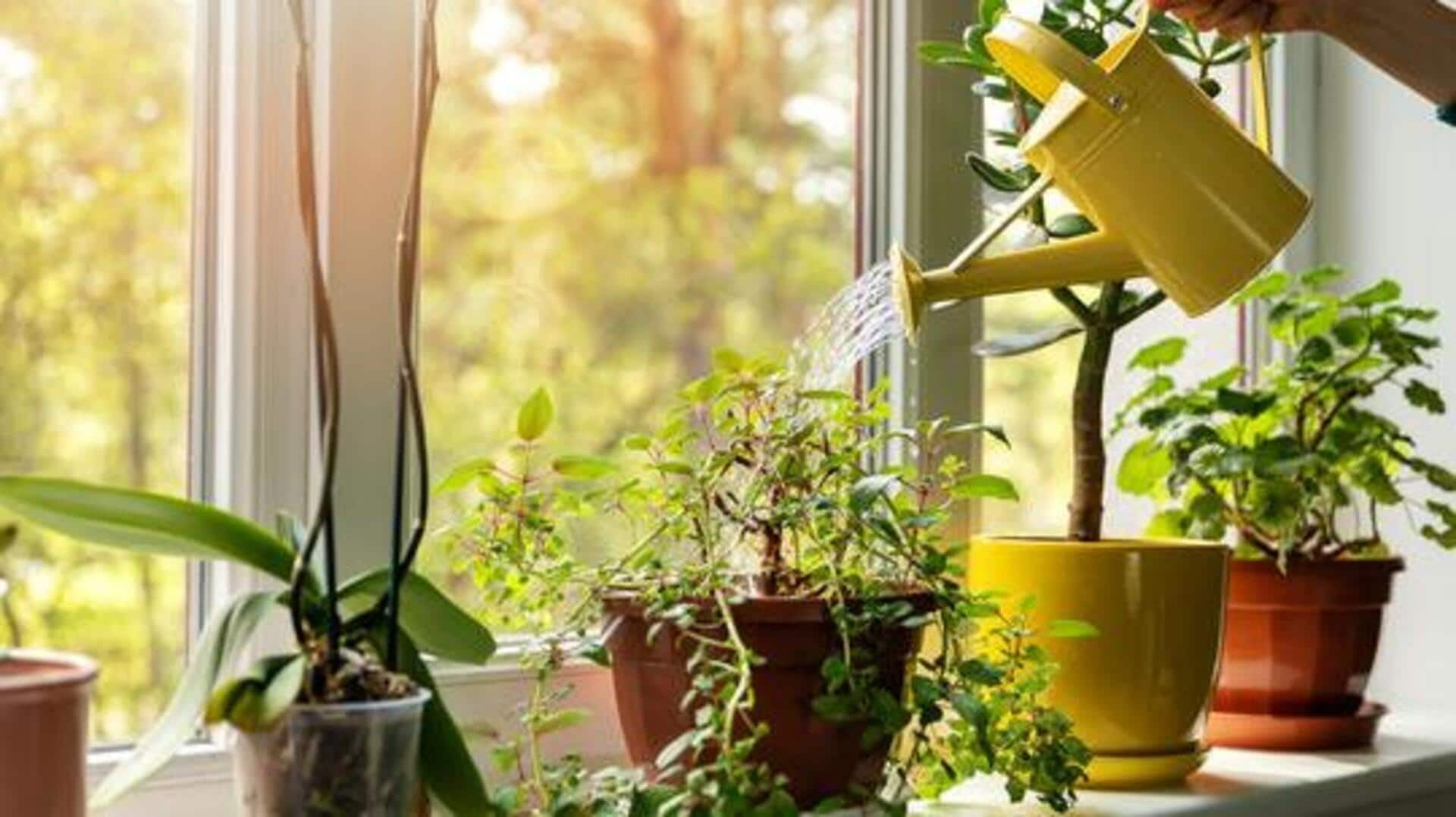
Plant parenting 101: 5 tips to avoid overwatering
What's the story
Urban gardening is the latest trend, with many of us converting our homes into lush green havens. But did you know that to keep your urban jungles alive, you need to know how much water your plants actually require? Proper watering can really make a difference in how your plants grow. Here are some practical tips to ensure your urban jungle thrives.
Plant needs
Understanding plant needs
Different plants require different amounts of water depending on their species and environment. Some plants like consistently moist soil, while others prefer it a little on the drier side. Researching each plant's specific needs is essential to avoid overwatering or underwatering. Observing the leaves and soil can also provide clues if a plant is getting enough moisture.
Timing
Timing your watering
The timing of watering makes all the difference. Early morning is usually the best time to water plants, it lets moisture reach the roots before the sun evaporates it. Evening watering is also effective but it can lead to fungal growth if leaves stay wet overnight. Adjust your schedule according to the season and weather.
Self-watering systems
Using self-watering systems
Self-watering systems are an ideal solution for busy urban gardeners who might not have the time for daily maintenance. These systems keep moisture levels consistent, allowing plants to draw water as needed from a reservoir. They come especially handy for container gardens, where the soil dries out quickly.
Soil moisture monitoring
Monitoring soil moisture levels
Monitoring soil moisture levels also prevents overwatering or underwatering, both of which can hurt plant roots. Simple tools like moisture meters or even using your finger to check soil dampness can help you in deciding when it's time to water again. Consistent monitoring ensures that each plant gets just the right amount of hydration.
Grouping plants
Grouping plants with similar needs
Grouping plants with similar water needs together simplifies care routines and ensures that all receive appropriate attention without risk of neglect or excess care for any individual species within mixed arrangements such as terrariums or vertical gardens. In these settings, space might be limited, yet diverse flora coexist harmoniously under shared conditions tailored specifically towards collective success.